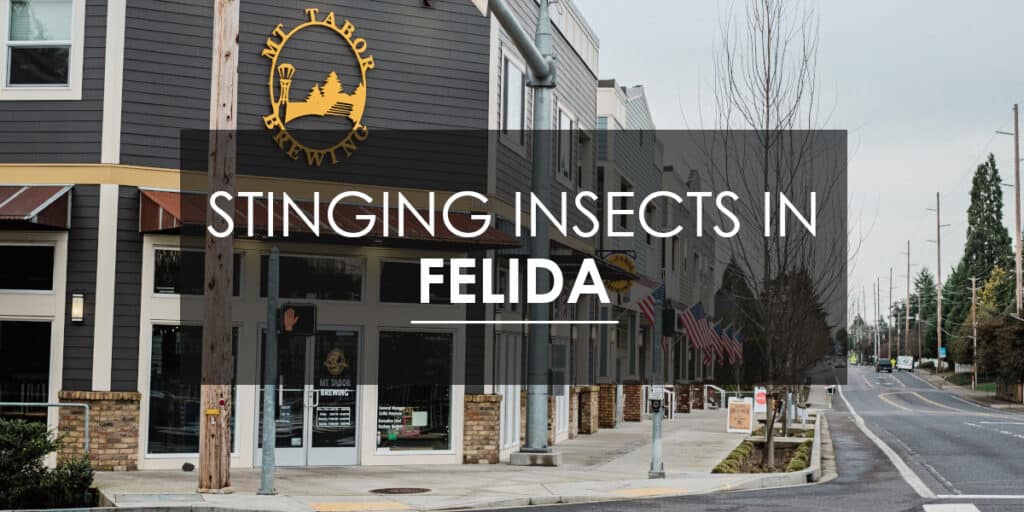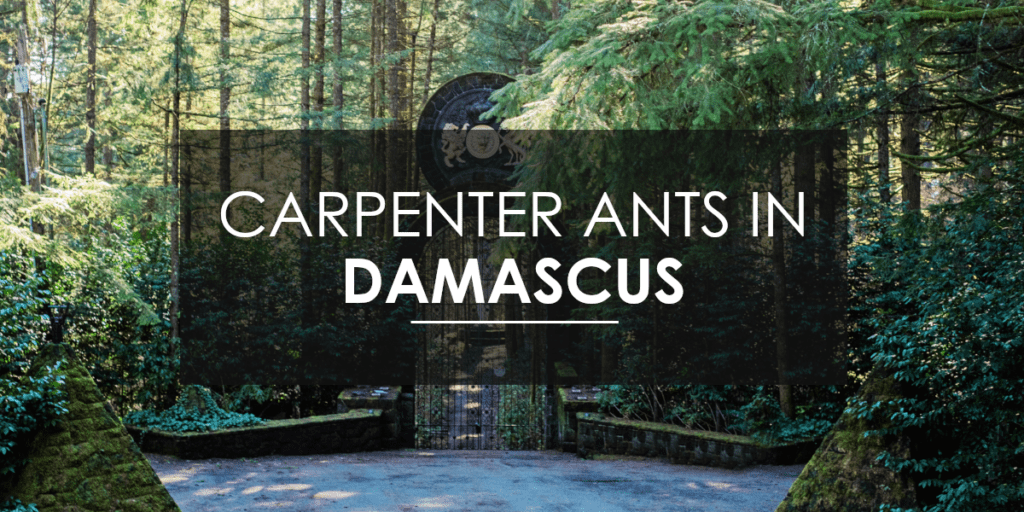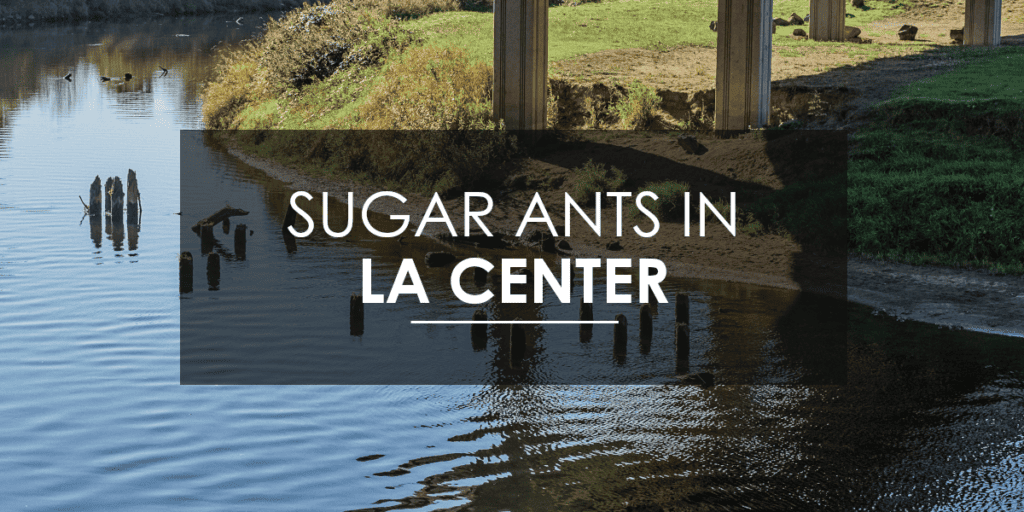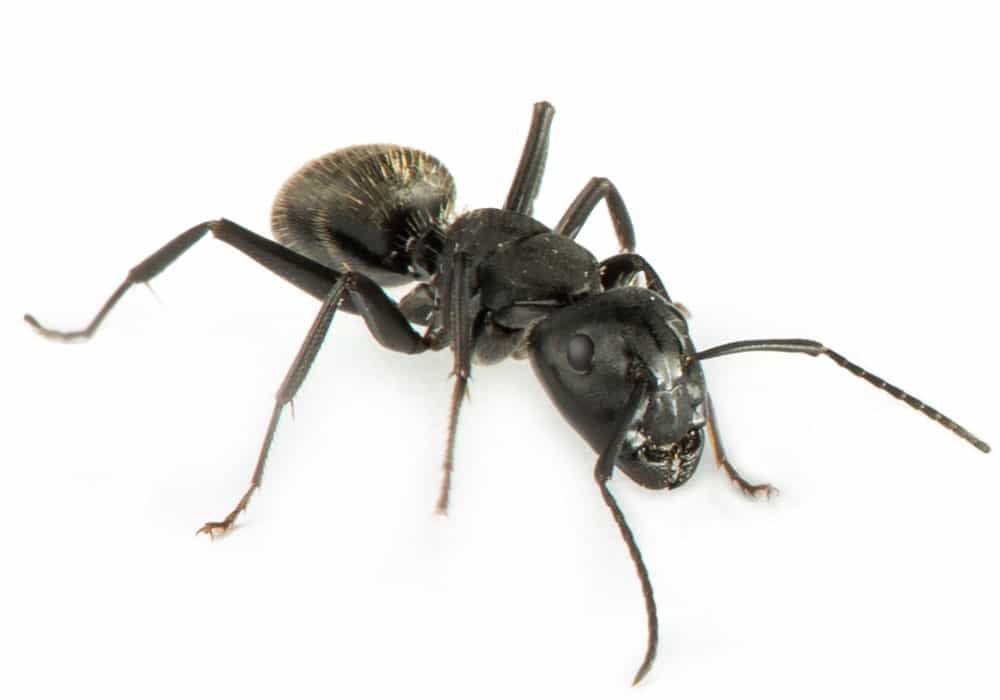Is there a creature as reviled as the spider? The snake? Maybe. Cockroaches? Perhaps. Sure, snakes have been portrayed as a symbol of evil long throughout history, and cockroaches, well, they’re just gross, right? But spiders? People — a surprising number of people*, in fact — are freaked out by spiders. In fact, you probably even know the specific scientific name for “fear of spiders (arachnophobia), but who knows what a fear of snakes or cockroaches is called? Fearing spiders is just that deeply ingrained in our culture.
And with over 500 species of spiders found in the greater Vancouver area (yes, you read that number correctly), it’s no wonder these 8-legged creatures make folks a little uncomfortable. After all, which ones are harmless? Which come with a potentially harmful bite? Do we really swallow spiders while we sleep? (According to Scientific American: Nope — just a myth.)
Listen, we get it. Spiders are creepy and crawly and when they lay eggs there are virtually hundreds of the little critters to contend with. And, of course, some do come with a harmful bite. (More on that later.) So you’re more than justified in wanting to get rid of an arachnid colony should it present itself on your home or property. After all, Aspen Pest Control is in the business of the extermination of pests, but it’s also our philosophy to dispel the myths and provide you folks in our community the best possible information so you can make the best possible decision in keeping your family happy and healthy.
Just the Facts: Spiders in Vancouver, Washington
According to the Washington State Department of Health (WSDH), most spiders are venomous, but most are not harmful to humans. In general, your concern with spiders shouldn’t necessarily be “Is this spider poisonous?” but rather, “Is this spider’s bite poisonous enough to be considered a danger to one’s health?”
Again, according to the WSDH, there are only two spiders in Washington State that are considered poisonous to humans: the black widow spider and the yellow sac spider.
Both species are most commonly found in eastern Washington and aren’t typically found in the Vancouver area.
There are false black widow spiders that can be found in all over the state of Washington, so if you’re in the western part of the state like we are, then odds are the black widow-like arachnid you’re seeing isn’t the real McCoy.
How to keep spiders out of your home and away from your body
- Bites most often happen when a spider is being squished or pressed against a person’s skin. To be safe and avoid bites, stay calm and brush them off of your or your loved one’s body.
- Handling firewood? Bringing plants in from the outdoors? Bringing a Christmas tree into the home? Inspect these items before bringing them indoors. They might be housing spiders or a spider’s egg sac, the latter of which can hold up to hundreds of eggs, depending on the species.
- Storing work or shop clothes in an out-building like a garage, barn, or shed? Shake them out, just to be safe, before putting them on — but do put them on. If you’re concerned about spiders on your property, wearing long sleeves and pants, protective goggles, etc. will keep your body safe from potential bites.
- Try to keep areas like sheds, garages, and attics free of clutter, as when these items go untouched for long periods of time, spiders may use these areas for laying eggs. If possible, periodically vacuum these space to reduce their desirability.
- Avoid placing things like shrubbery and wood piles too close to the outside of your home. This is a common breeding ground for spiders.
- As with many insects, arachnids can easily fit through small foundational cracks or breeches in window seals and doors. Make sure these are sealed appropriately to reduce their opportunities for entry.
How to identify a spider bite, and what
to do if you’re bitten in Vancouver, Washington
Though most harmful to human venomous spiders are not native to the greater Vancouver area, that doesn’t mean you can’t be harmed by a spider bite. Some folks are allergic to certain types of spider bites, and, although it’s unusual, it is possible to be bitten by a more venomous spider in the Vancouver area. The severity of the bites vary just as widely as the number of species that live in the state of Washington, with some being entirely unnoticeable, and, in the most extreme examples, fatal. Most spider bites will result in very minor symptoms. At Aspen Pest Control, we want you to be safe and informed. Here, with a little assistance from the Washington State Health Department, are recommendations in how you can identify a spider bite, and what you should do if you or a loved one have experienced it.
- Understand the symptoms. As stated, the symptoms of spider bites vary. Here are the most common traits of spider bites: pain or irritation where the bite occurred, swelling, itchiness, skin discoloration, nausea, headaches, fever, perspiration, anxiety, and shortness of breath.
- Get medical assistance — as quickly as possible. It’s difficult to distinguish between a false black widow and the real thing. If you’re bitten, go to the hospital right away, and, if possible, it is recommended you bring the spider with you so it can be confirmed as to what species of spider you’ve been bitten by. The more information you can share with medical professionals, the better they can diagnose and treat you.
- Don’t try to remove the venom yourself. These efforts largely prove unsuccessful and are a waste of what could be precious time. Instead, use soap and water to wash the afflicted area, wrap it it with bandage to reduce swelling, and, if possible, apply ice and elevate the bitten area before seeking out professional medical attention.
Again, and we cannot stress this enough, if you or a loved one are experiencing any of the above, please seek out medical attention immediately!
Spider extermination in Vancouver, Washington
Spiders are an interesting creature. Unlike many insects, the standard methods of extermination don’t apply to these arachnids. Why? Because, contrary to ants, wasps, and other pests, spiders don’t clean themselves by putting their legs in their mouths, making the transference of pesticides more difficult to administer. They simply don’t ingest them in this way. At Aspen Pest Control, we not only apply treatments that eradicate the spiders themselves, but we also conduct thorough web removal to ensure long-term eradication. We focus on treating the appropriate locations — think under eaves, siding, and decking, and in any foundational cracks or breeches we identify in the home. Since spiders spend such a great deal of their time building webs, we go the extra mile for our clients and remove these, as well, on all of your accessible first and second story eaves.
In order to break the cycle of the spider’s reproductive cycle, many of our clients have found that a quarterly treatment plan is most effective in ensuring your home and property stay spider free, though we do have a variety of treatment plans to choose from, depending on the scale of your infestation and other essential concerns like timing and budget.
Spiders, while an important part of our ecosystem, don’t deserve a place in your home. If you’re experiencing the burden of spiders, or any other pest infestation, don’t hesitate to call Aspen Pest Control. We’re here to serve all your pest control needs, and we’re happy to answer any questions you might have! Call us today.







